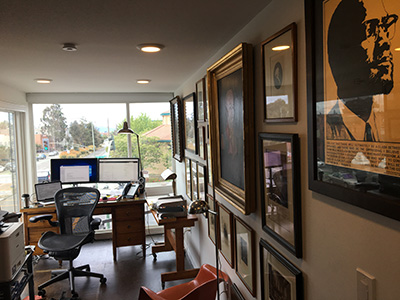
FREE CONSULTATION | Call 510.350.7517 CONSULTA GRATUITA | Llame 510.350.7517

Section 1983 claims against supervisors
Under certain facts, a police supervisor may be liable for the violation of a person’s federal civil rights, where the supervisor was not present but his or her conduct caused the injury. This means that a supervisor does not need to “personally participate” in the constitutional injury to be liable for it. But there must be a causal connection.
Generally, to prevail on a section 1983 supervisory liability claim, a person must prove the following elements by a preponderance of the evidence:
- The supervisor acted under color of state law;
- The supervisor’s subordinate officer’s act or failure to act deprived the person of a particular federal right.
In addition, a person must prove one of the following:
- The supervisor directed the officer in the act or failure to act that deprived the person of a particular federal right;
- The supervisor set in motion a series of acts by the officer—or knowingly refused to terminate a series of acts by the officer—that the supervisor knew or reasonably should have known would cause the officer to deprive the person of a particular federal right;
- The supervisor both (a) knew that the officer was engaging in a series of acts and knew or reasonably should have known that the officer’s conduct would deprive the person of a particular federal right; and (b) the supervisor failed to act to prevent the officer from engaging in such conduct;
- The supervisor both (a) disregarded the known or obvious consequence that a particular training deficiency or omission would cause the officer to violate the person’s constitutional rights; and (b) the deficiency or omission actually caused the officer to deprive the person of a constitutional right;
- The supervisor engaged in conduct that showed a reckless or callous indifference to the deprivation by the officer of the rights of others, and the supervisor’s conduct was so closely related to the deprivation of the person’s rights as to be the moving force that caused the ultimate injury.
Ninth Cir. Civ. Jury Instr. No. 9.4.
Request a Free Consultation
Police Misconduct
- Overview
- Pre-lawsuit hurdle: the government claim
- Section 1983 claims generally
- Section 1983 excessive-force claims
- Section 1983 excessive-force jail claims
- Section 1983 jail claims based on conditions of confinement
- Section 1983 unreasonable searches of the home
- Section 1983 wrongful detentions and arrests
- California false imprisonment (false arrest) claims
- Section 1983 loss of familial association
- Section 1983 claims against supervisors
- Section 1983 claims against a municipality or its subcontractor
- Qualified immunity in section 1983 claims
- Americans with Disability Act (ADA)
- Negligence
- Wrongful-death claims
